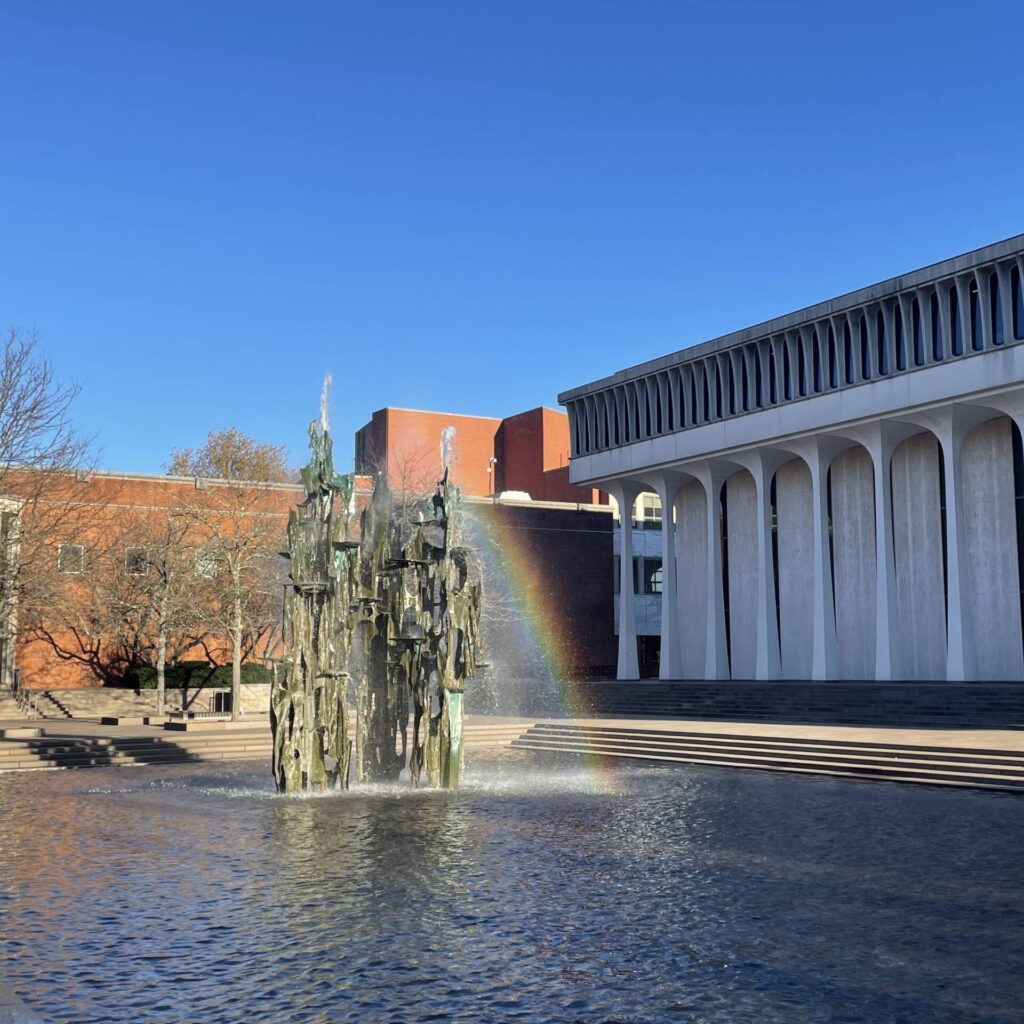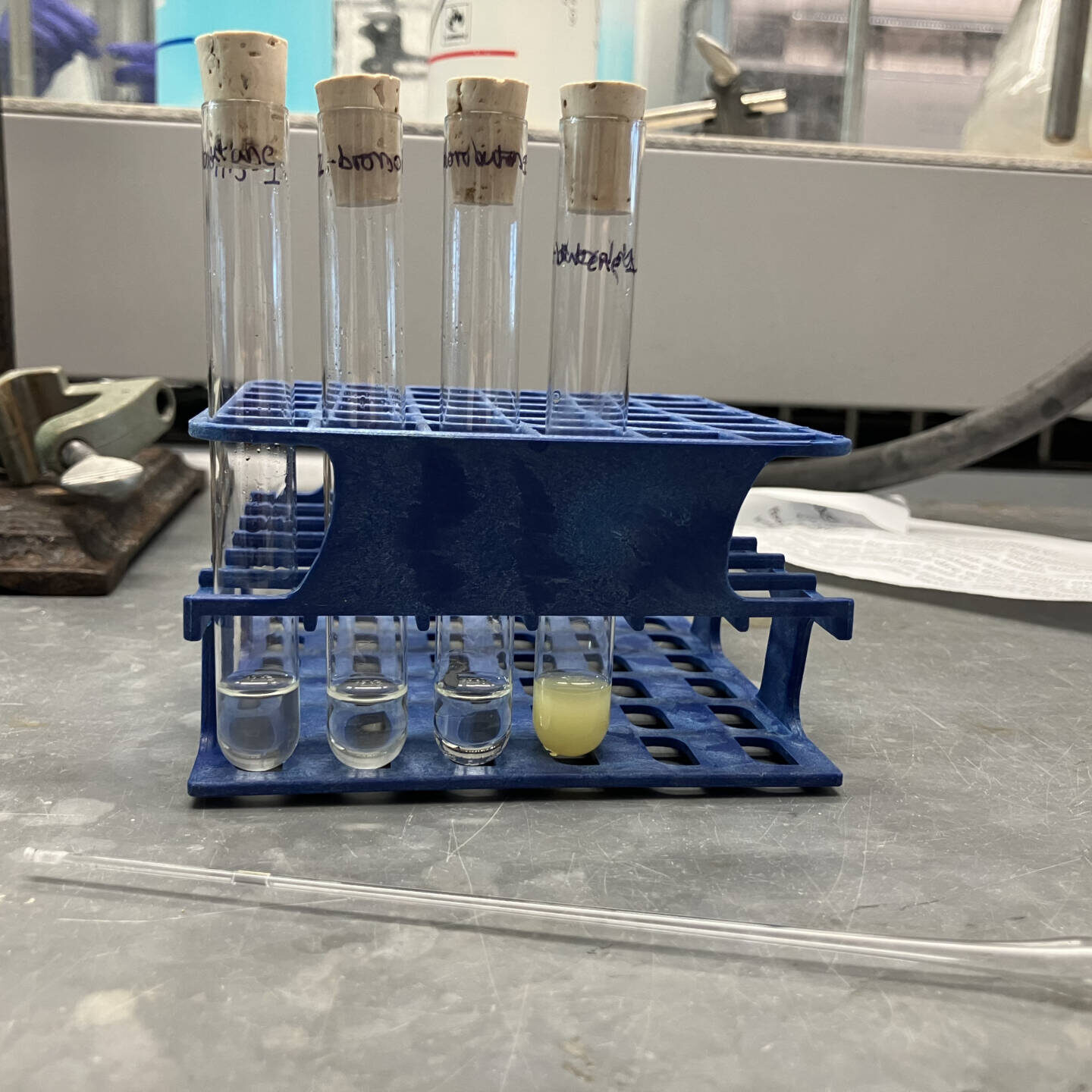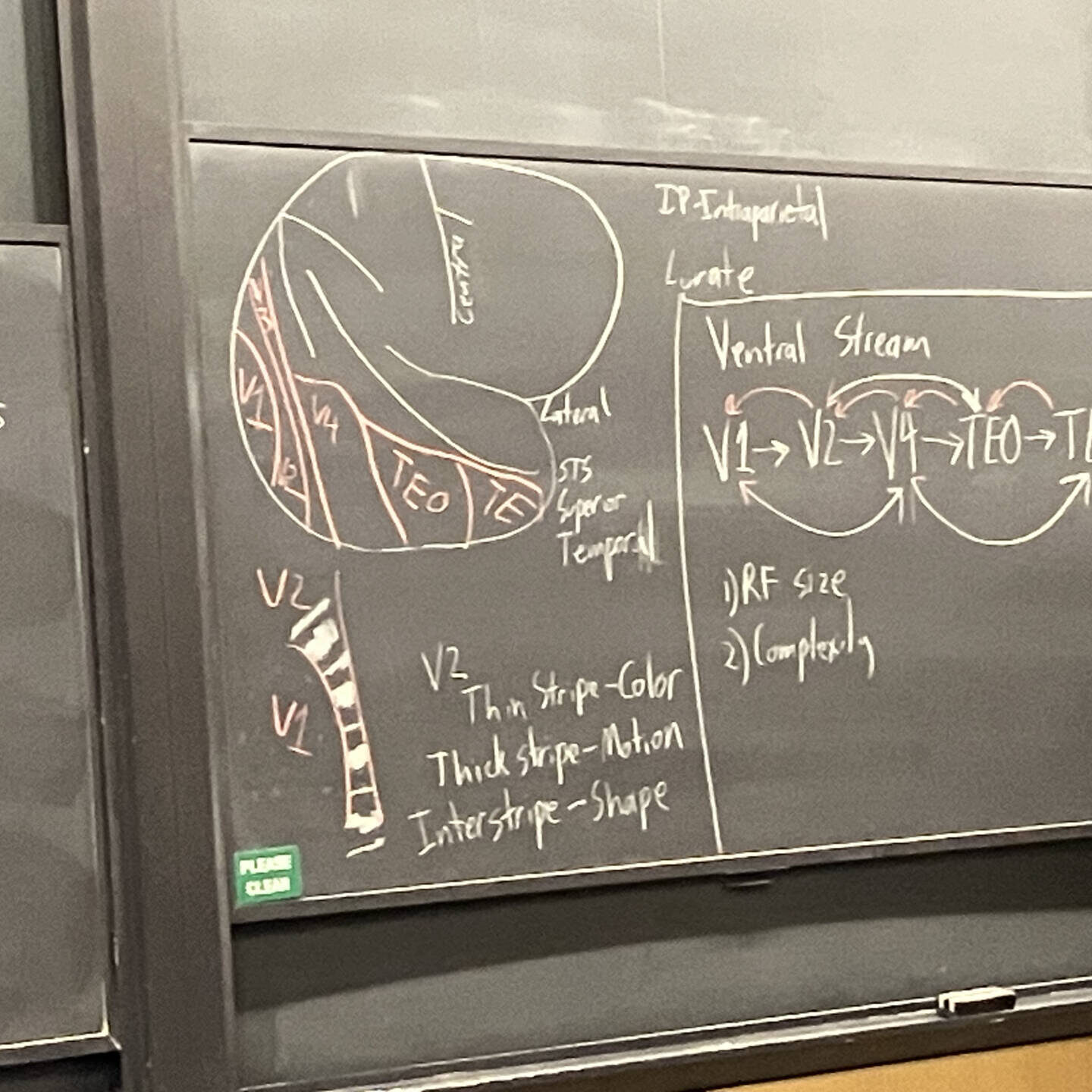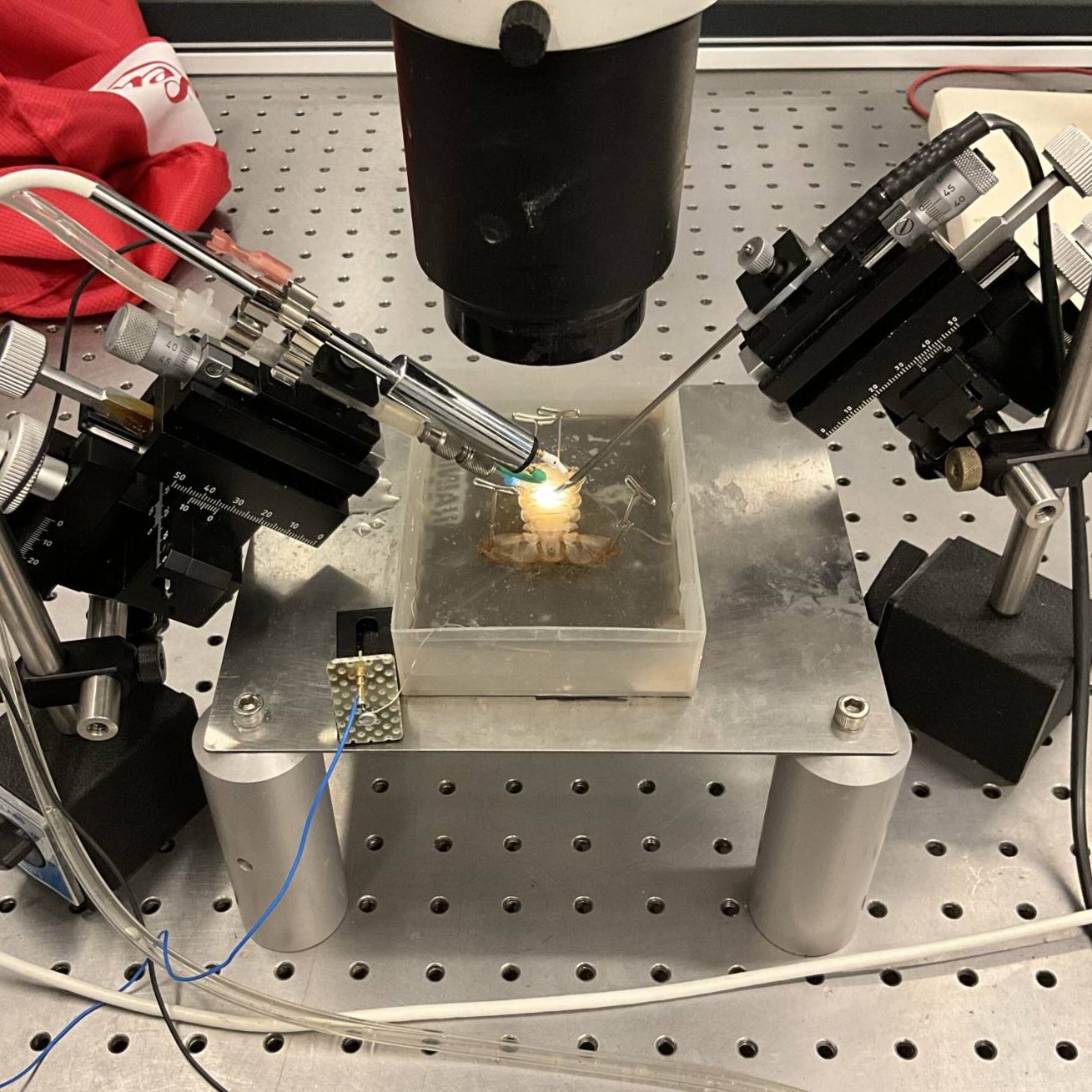Many of us might think of classwork and research as two separate entities. Here at Princeton, we might think, we take classes to learn and to prepare ourselves for independent work, but the two are distinct concepts. But reality is, of course, much more complex: classes at Princeton can and do incorporate elements of independent research work. This spring break, I had the opportunity to conduct field research as part of one of my classes, GEO 372 (Rocks!). We flew down to Death Valley National Park for a week, collecting various rock samples and learning about the regional geology. For the rest of the semester, we’ll be analyzing the samples to answer our given research question.
Continue reading Classwork Meets Research Work: A Unique Field-Based Experience in Death ValleyHeads Up: You Might Need Study Approval from the Institutional Review Board

Independent research at Princeton offers an incredible opportunity for students to explore their academic interests and gain experience in the research world. This year, I’m working on my Senior Thesis with Professor Aleksandra Korolova, conducting an audit of Google ad delivery optimization algorithms. Specifically, I am studying whether aspects of advertisements—the image, text, links, and so on—impact the demographics of the audience to whom the advertisement is delivered.
In the fall, many people were curious about how my thesis was progressing. The truth was, for a few weeks, I hadn’t started running any experiments, since I first needed my research to be approved by the Institutional Review Board (IRB). Through this experience, I both gained insight into the IRB process and found that many students had never even heard of the IRB. In this article, I share my experience and offer advice for students who are planning to conduct independent research.
Continue reading Heads Up: You Might Need Study Approval from the Institutional Review BoardThe Point of the Lab Component: It’s not Just Three Hours of Misery for the Sake of it

For STEM majors, lab components of classes can be cumbersome. They can add stress to the classroom experience–not to mention the long hours. Unlike research in a lab as part of a thesis or independent work, these labs may not allow for self-direction, and can feel very methodical. Sure, they apply what we are taught in class, but for me personally, the rates at which lab and lecture move can be quite different, and I do not fee the benefits of the lab experience until later on in the semester when it finally clicks for me.
What’s the point of lab work then?
Continue reading The Point of the Lab Component: It’s not Just Three Hours of Misery for the Sake of itA Guide to Reading Research Papers Like A Pro

We all have to do it: read research papers. They can be jargon-y, long, confusing, and all in all an upsetting experience, but there’s no way around it.
First of all, let’s start by approaching this with a more positive mindset. Reading research papers can give us access to a bucketload of information that no other resource can provide. It is the most updated source on your favorite scientific topics, a Vogue magazine for the scientific world if you will. As such, reading them can be fun–but only if you know how. Now that we are a bit more optimistic about reading them, we can start with the first few steps.
Continue reading A Guide to Reading Research Papers Like A ProCitations, Citations, Citations: A Guide to Keeping Track of these Pesky Beasts
If I have to be completely honest, dealing with citations is my least favorite portion of the academic writing process. Ascertaining what citation style I need to use, successfully figuring out how to actually format citations in that style, and managing the hodgepodge of footnotes and endnotes are all tasks that seem, to me, cumbersome. Of course, these are necessary tasks: it is imperative that if we paraphrase, quote, or utilize in any way the work of others, we should always attribute the proper credit to them. But recognizing the importance of academic integrity doesn’t prevent us from still finding the task of dealing with citations to be a chore! If you’re in the same boat as I am, I’ll try to provide some advice and tips on dealing with citations!
Continue reading Citations, Citations, Citations: A Guide to Keeping Track of these Pesky BeastsInside the Neuroscience Lab: How Core Lab is Shaping My Research Journey

For most STEM majors at Princeton, one of the requirements is a course known informally as Core Lab. This class aims to equip students with laboratory skills required to succeed as a scientist in the field. It is usually composed of two 3-hour labs and one lecture per week. As a neuroscience major, I am currently taking NEU 350: Laboratory in Principles of Neuroscience, a class designed to introduce students to modern methods of analyzing neural activity—from the level of single neurons to large-scale networks underlying cognition. The course covers a range of techniques, including intracellular and extracellular recordings, optogenetics, EEG, and fMRI. After weeks of conducting designed experiments, it culminates in an independent research project where students design and conduct their own experiments based on knowledge and skills learned throughout the semester.
Continue reading Inside the Neuroscience Lab: How Core Lab is Shaping My Research JourneyA Guide to Poster-Making
You’ve finished a research project and now you’re on to the final step: presenting your work! It’s time to share the incredible work you’ve done with the general public, and one of the best ways to do so is to create a poster conveying the significance and conclusions of your research. This will be an essential skill during your time at Princeton whether for a course or as a part of your junior and senior independent work. If this is your first time creating a poster presentation, check this blog out!

Balancing Research and Academics: The Art of Course Planning

Planning your courses while doing research can feel like a juggling act—one that involves not just your academic requirements but also your research commitments and, of course, your own well-being. At a place like Princeton, where opportunities in labs and research projects abound, learning how to navigate and integrate everything into your schedule can make a huge difference.
Continue reading Balancing Research and Academics: The Art of Course PlanningSimplify Your Research Poster Printing: Using Princeton’s Makerspace Large Format Printer
The end of the semester is often accompanied by deadlines for semester-long projects and final papers (including the infamous Dean’s Date deadline, which past correspondent Ryan Champeau has amazing advice on!). For some classes, students may be asked to create an academic or research poster and present their work to their peers in a poster session. A couple of courses I have taken where I produced a final research paper were COS 484: Natural Language Processing and ASA 238: Asian-American Psyches.
In ASA 238, the department provided funding so that all students in the class could have their poster printed through Princeton Print & Mail Services. However, this option typically is not free-of-charge to students. Moreover, since this process typically takes 4-5 business days after the proof is approved to be printed, course instructors may set conservatively early deadlines so that all students’ posters may be printed on time. With more deadlines in other classes, this can create additional stress.
The great news is, this stress can be avoided with a free, straightforward alternative: utilizing the Makerspace’s Large Format Printer. The Princeton University Library (PUL) Makerspace is a creative space on the A-level of the Lewis Science Library open to current students, faculty, and staff. If you’ve never used the space before, it might be daunting, but I hope this article will clarify the process and assuage any fears you may have!
Continue reading Simplify Your Research Poster Printing: Using Princeton’s Makerspace Large Format PrinterA Hidden Gem for Humanities Researchers: The Princeton Index of Medieval Art

Many academic disciplines engage with visual art, whether from the standpoint of art history, material culture, or even paleography. The Princeton Index of Medieval Art is a unique database well-suited to the needs of researchers across various fields. Whether history, comparative literature, art, or classics, the index gathers a vast amount of information on Late Antique and Medieval Artworks, neatly sorted in an accessible way.
Continue reading A Hidden Gem for Humanities Researchers: The Princeton Index of Medieval Art
